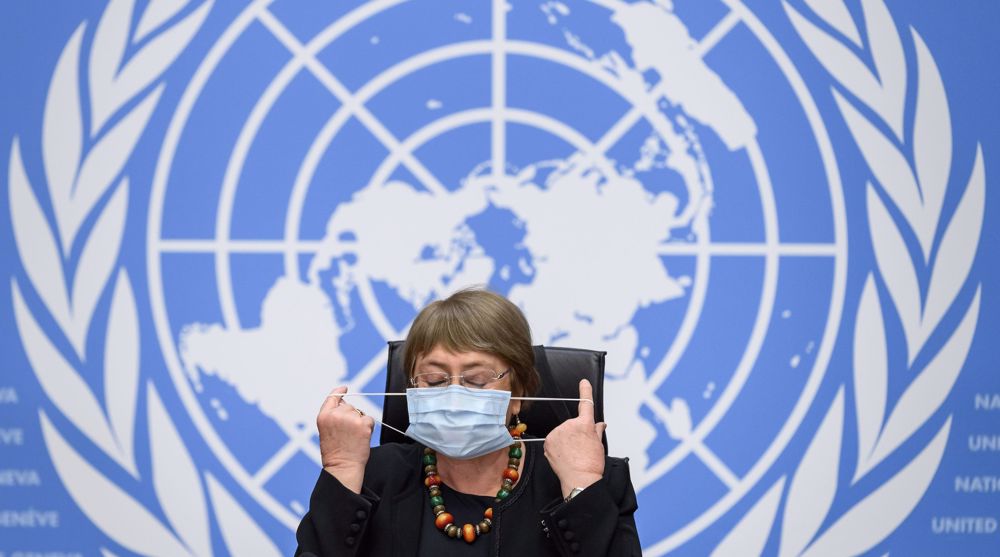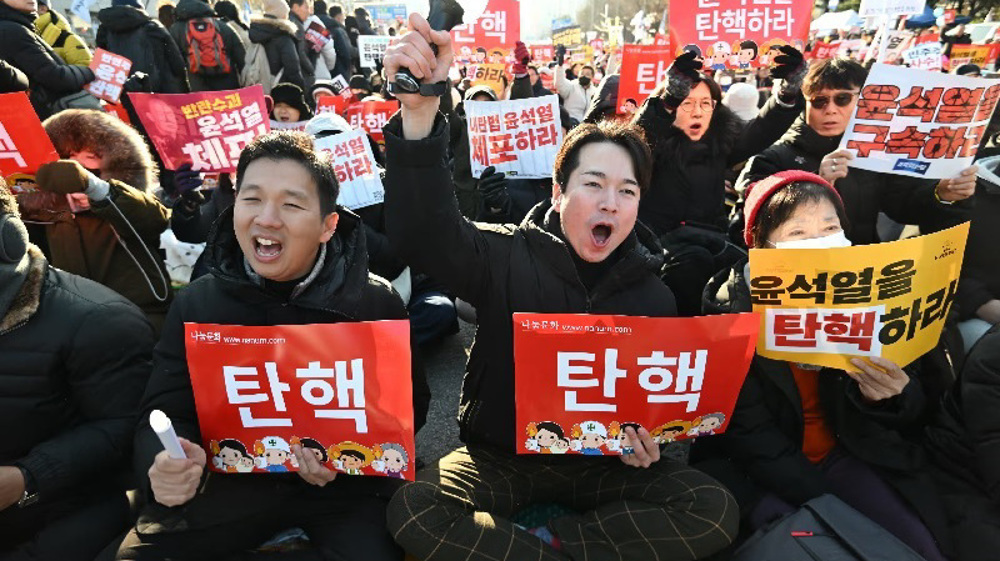Iran: UN resolution shows sheer hypocrisy regarding human rights
The issue of human rights once again caused controversy and deep divisions at the United Nations General Assembly this week as the Assembly passed a resolution on the human rights situation in Iran on Wednesday.
The document was critical of the use of the death penalty and prison conditions as well as other alleged rights violations in Iran. The resolution was proposed by the Canadian government and supported by the United States and most of its regional and Western allies.
The UN General Assembly has 193 members, but the resolution against Iran was passed with 82 votes in favour. That's significantly less than half of the number of member states.
The Iranian government was quick to condemn the move, saying an anti Iran block used the General Assembly on Wednesday as a tool to impose pressure on Iran.
Tehran argues that the resolution has exposed sheer hypocrisy regarding human rights because many of the proponents of the anti Iran move have either notorious records of human rights violations themselves or choose to remain silent on such violations in certain parts of the world.
Tehran asserts that the states behind the resolution are under the influence of American bullying. The Iranian government says those states have turned a blind eye to US economic terrorism against the Iranians, at the time of a worsening pandemic, are acting as Washington's accomplices, instead of condemning the illegal and inhumane sanctions that have hurt ordinary Iranians.
This week the United States voted against, while European states and Canada abstained from, voting on an important Russia drafted document. The initiative was titled “Combating glorification of Nazism, Neo Nazism and other practices that contribute to fueling contemporary forms of racism, racial discrimination, xenophobia and related intolerance.
The Russian drafted resolution was passed with 130 votes in favour despite the campaign by the US and its allies. The Russian initiative is aimed at condemning and combating some of the most notorious forms of violation of human rights in the world, like Nazism and racism.
So why did the US and its allies choose to stand against or be different towards the resolution? Was it because the text was drafted by Russia, which is a rival on the world stage? Critics say what happened this week at the UN General Assembly, further exposed the double standards adopted by the US and its allies regarding human rights around the world.
Ultimately, anything they do in the name of human rights always is underpinned with their own economic interests, and they don't make any bones about this, they will drop the principles of human rights when it comes to anything which threatens their economic interests. So this is a highly dubious moral position to take given that you're finding these nations squawking the loudest about the supposed human rights violations in other nations.
Seyyed Mohsen Abbas, Journalist & Commentator
Meanwhile, some of the states that are very loud in lecturing others at the UN are themselves known violators of human rights at home.
An instance is Canada, which is widely criticized for its violations of the rights of its indigenous population and widespread discrimination against them.
Meanwhile, Persian Gulf Arab allies of the United States are also among the states that join US led campaigns against other countries over human rights.
The Arab countries such as Saudi Arabia and the United Arab Emirates are ranked among the world's worst rights violators.
Observers believe this trend needs to change if the US and its allies really care about human rights around the world.
'Israel booby-trapped walkie-talkies, pagers years before Lebanon blasts'
Gaza Health Ministry calls for urgent intl. help to protect hospitals amid Israeli genocide
Stakes involved in Iran’s partnership with Eurasian Union
VIDEO | Press TV's news headlines
Iran says ‘ready’ to reopen embassy in Syria, holds talks with Damascus
VIDEO | 12 people killed in ammunition factory blast in northwest Turkey
Iraq’s PMU masses resistance forces on border with Syria amid mounting concerns
Israel killed over 700 athletes in Gaza since October 2023














 This makes it easy to access the Press TV website
This makes it easy to access the Press TV website